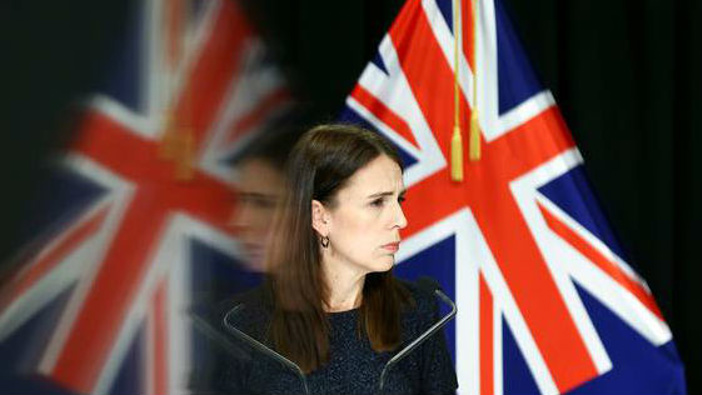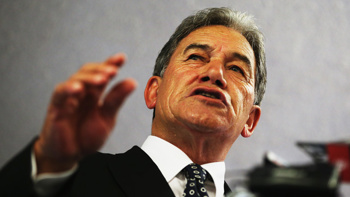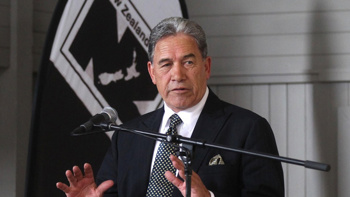Prime Minister Jacinda Ardern says there will be three "early indicators" which will help guide the Cabinet on whether the lockdown should be lifted in 16 days - and has confirmed the Government was offered the sale of the closed NZ arm of Bauer magazines for $1.
In a wide-ranging interview, Ardern told Mike Hosking on Newstalk ZB today that she understood the Government had been approached to buy Bauer, although not her personally.
Her comments come as Cabinet ministers will today work through what needs to happen for the nationwide lockdown to end in 16 days - and while no decision has been made, the Prime Minister says there are reasons for optimism.
New Zealand seems to have avoided the exponentially tighter grip that Covid-19 has unleashed on other nations, but Ardern was quick yesterday to warn that anyone relaxing their behaviour could jeopardise the progress made so far.
Ardern told Hosking today there were three factors - or early indicators - the Cabinet would be looking at as it started considering whether it could be lifted in 16 days: The rate of cases; the level of community transmission, and the results of extra testing at regional level to give a more localised view.
The 89 new cases in New Zealand yesterday was consistent with the number of new daily cases since the lockdown came into force, and the total of 1039 confirmed or probable cases was 3000 fewer than the predicted number for yesterday, which was provided to the Government on the eve of the lockdown.
But expert epidemiologists say there needs to be more testing data across all regions, socio-economic groups and ethnicities before the lockdown can confidently be lifted.
Bauer - which owns iconic titles Listener, Woman's Weekly, Woman's Day and others - announced its sudden closure last week, citing its inability to publish and distribute magazines in the Covid lockdown.
Ardern said the Government had wanted the business to take up the wage subsidy scheme for its approximate 250 staff, but indicated wider factors were at play.
"They did talk about whether the Government would buy Bauer. We wanted them to remain open, and we offered the wage subsidy - and they weren't interested.
"I think you would have something to say if we started buying up women's magazines," she told Hosking.
Pushed on why the Government did not buy Bauer for $1, she said: "That's not the role of Government...what we wanted was for that business to continue with the wage subsidy. I don't think they were interested in continuing in New Zealand."
Ardern defended the level of Covid testing in New Zealand, saying the positive rate for tests was under 3% - on a par with South Korea. A city like New York, where Covid was running out of control, was at 50% positive testing.
She acknowledged distribution of equipment - including PPE equipment, swabs and tests - had needed to improve, but the country, by and large, had good supply.
"Same issue with flu vaccine, in some places people have run out - we have half a million vaccines... it's about moving them around the country. That means knowing how many every GP and pharmacy have.
"We need to move to war-time footing. I expect these things to be logistically much tighter.
There were 3093 tests processed yesterday, with capacity of up to 6000 tests a day. The Ministry of Health would be rolling out surveillance testing this week - using data to try to target people who were not just presenting for tests.
People coming forward with upper respiratory issues were being tested. Asymptomatic people were not being tested, nor would we want to be, she said.
"We have got over 60 testing stations that should be available at all times.
"Relative to other countries we are doing well... but we can always be better. You shouldn't just randomly test anyone who is asymptomatic."
New Zealand's director-general of health Dr Ashley Bloomfield told Hosking New Zealand had seen an "encouraging" flattening of growth in cases.
That's partly because New Zealand had moved to alert level 4 early, rather than moving slowly toward a lockdown like other countries.
Bloomfield said in the last three-four days - slightly earlier than expected - the flattening off had been seen. In the next few days the hope was there would be a drop in cases.
Officials were looking for that drop this week but it was too early to call whether it would happen.
The Ministry of Health was working with DHBs to make sure that when NZ moved back to alert level 3, important appointments and elective surgery would be carried out.
Hospitals are running at 50-60 per cent capacity - meaning there are about 1000 beds empty. ICU staff are being trained and hospitals getting ready while there are fewer people in hospital.
Meanwhile, Americans have been warned that the coming week will be the "hardest and the saddest" in most people's lives due to the coronavirus pandemic.
The US surgeon general on Sunday warned Americans that the coming week will be the "hardest and the saddest" in most people's lives due to the coronavirus pandemic — comparing it to Pearl Harbor and 9/11.
"It's tragically fitting that we're talking at the beginning of Holy Week because this is going to be the hardest and the saddest week of most Americans' lives," Jerome Adams told Fox News.
As of Sunday morning local time, the US had 312,481 confirmed cases of the virus across the US. Globally, more than 1.2 million people have been infected.
The Queen this morning paid tribute to heartwarming stories across the Commonwealth. "If we remain united and resolution, we will overcome it."
"Better days will come - we will be together again, we will see our friends again."
Future generations would look back at the people today and consider this generation "as strong as anyone".
Back in New Zealand, Ardern's warning to keep complying with lockdown rules followed a number of surfers heading out to Auckland's west coast yesterday morning, despite an explicit ban on surfing that was announced the night before.
"There are still some I would charitably describe as idiots," Ardern said of those who deliberately flouted the rules, citing in particular a Christchurch man who published a video of himself coughing on people.
As New Zealanders emerge on day 12 of the lockdown, Ardern thanked them for their "sacrifices" by following the unprecedented restrictions that have been in place since March 26.
She revealed modelling - done by Asia-based macro advisory firm Wigram Capital Advisors - from the eve of the lockdown that showed there would be about 4000 cases yesterday.
The fact there were only 1039 showed that the lockdown was making a difference, Ardern said.
"Going hard and going early appear to be paying off for us," Ardern said at her press conference yesterday.
"The sacrifices that you have made - it is making a difference."
The number of new cases since the lockdown has remained largely static, swinging between 58 and 89 cases each day.
The exponential growth in the number of cases in the UK and US saw both countries record their deadliest days of the pandemic yesterday, with 708 deaths in the UK and more than 1000 in the US.
More than 4000 people in Britain and 8000 people in the US have died from coronavirus.
- Covid19.govt.nz: The Government's official Covid-19 advisory website
But Ardern was quick to add that no decisions had been made about lifting or extending the lockdown after four weeks.
"We're not at a point yet where we can see the full impacts of alert level 4."
tickets by the police at Piha beach yesterday. Photo / Alex Burton
Cabinet will today consider the criteria for deciding to ease the lockdown, and how sectors from education to business will operate at different alert levels as schools and shops re-open.
Ardern said the criteria was yet to be worked through, but she pointed to key factors including the number of new cases, the rate of community transmission, and the ability to do rapid contact-tracing, which businesses and schools could help with.
Take your Radio, Podcasts and Music with you










